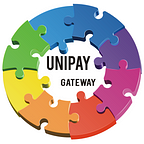Healthcare Specialists and Electronic Payment Processes
Healthcare specialists are rapidly embracing electronic payment functionality. Platform providers are wondering which payment solutions would work best for them. Solutions that work well for other businesses may not be appropriate for healthcare specialist businesses.
Healthcare specialist businesses need to consider the unique aspects of their business when choosing a payment solution. One size is not suitable for all when selecting a payment solution for a healthcare specialist business. What works well for one healthcare specialist business may not work well for another. They need to evaluate their own business needs and choose a payment solution that will work best for them.
Healthcare is an industry that’s notorious for its paperwork and red tape. In order to make the healthcare payment process more efficient, many businesses are beginning to integrate their core products with accounting systems. This way, both payment information and medical records can be entered into the system automatically.
Patients also need access to diverse ways of making payments for medical services in order to ensure both convenience and privacy. Fortunately, there are many different healthcare payment solutions available that can meet these needs. By taking advantage of these solutions, businesses can make the healthcare payment process more efficient and hassle-free.
The Doctor-Patient Perspective of Healthcare Payment Solutions
Healthcare is an industry that’s constantly evolving, and with that evolution comes a change in the way that healthcare services are paid for. In the past, insurance companies were the primary payers for healthcare services, but now there are a variety of payers, including government programs, employers, and patients themselves. Each of these payers has a different perspective on how healthcare should be paid for, and this can lead to different scenarios for patients.
For example, if a patient is covered by insurance through their employer, they may have a copayment or co-insurance for doctor’s visits or other services. However, if Medicare or Medicaid covers a patient, they may have little to no out-of-pocket costs for their care. And if patient is self-paying for their care, they will likely have to pay the full cost of their care upfront.
Healthcare is a complex industry, and understanding the different ways that patients can pay for care is crucial for ensuring that everyone has access to the care they need.
Patients may choose to pay for their healthcare services in a number of ways, such as:
o Online payments: This is often the preferred payment option for some patients and some medical practices.
o In-office payments: Patients need to pay copayment payments, plus other medical expenses, while in the medical center.
o Making online copayments. It often occurs that this is the only way copayments can be made. The patient is typically only aware of their own contribution once the insurance company has processed the claim, which can be a few days after their visit to a medical provider.
o Making installment payments: This occurs when accounts are large (as in orthodontic accounts), and the patients make payments in installments.
Platforms and Healthcare Payment Solutions
Healthcare software platforms are constantly evolving, so it’s critical to have a payment solution that’s flexible and can grow with your platform. Healthcare providers have traditionally used standalone terminal solutions, but these solutions are no longer able to go toe-to-toe with the changing demands of the healthcare industry.
The healthcare industry is facing a number of challenges when it comes to payments.
o First, there’s the issue of rising costs. Healthcare costs have been steadily increasing for years, and this trend is unlikely to change in the near future. As a consequence, more and more are struggling to pay their medical bills.
o Then there’s the issue of complexity. The healthcare system is already complex, and adding another layer of complexity with different payment solutions only makes it more difficult for patients and providers alike.
o The issue of interoperability. With so many different payment solutions on the market, it can be difficult for them to work together seamlessly.
o The issue of security. Healthcare data is one of the most delicate data out there, and any breach could have devastating consequences.
o And there’s the fraud issue. Every year healthcare fraud costs billions of dollars, and integrated healthcare payment solutions can help to reduce this problem.
In light of these challenges, it’s clear that integrated healthcare payment solutions are needed. Integrated solutions can help to address all of these challenges by providing a single platform for payments that is simple to use, easy to implement, and highly secure. Additionally, integrated healthcare payment solutions can help reduce fraud by providing a single point of data entry that can be monitored more easily.
As the healthcare industry continues to face these challenges, integrated healthcare payment solutions will become more and more essential.
Why Integrated Payment Solutions Are More Efficient
o Offering a range of payment methods helps diversify your customer base.
o It gives Doctors the opportunity and ability to offer additional services.
o Integrated payment solutions provide support for recurring payments.
o Integrated payment solutions deliver a simplified merchant onboarding process.
o Any integrated terminal payment solution that’s based on Android terminals, like Sunmi, delivers a paperless patient record.
If you have any queries regarding the above, please don’t hesitate to contact us for further information.
